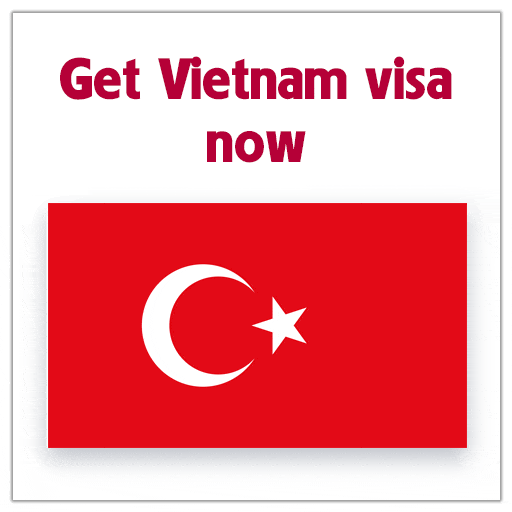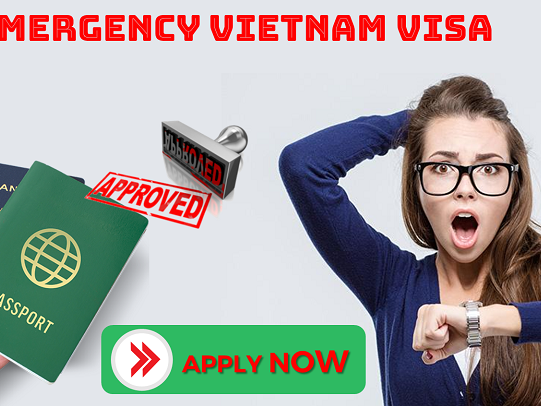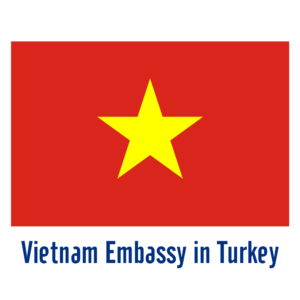Acquiring a Vietnam Tourist Visa in Turkey is a crucial step for Turkish travelers planning to explore the rich culture and breathtaking landscapes of Vietnam. This guide provides comprehensive information on the various aspects of obtaining a tourist visa for Vietnam from Turkey, ensuring that your travel plans are seamless and enjoyable.
Introduction to Vietnam Tourist Visa

Traveling to Vietnam offers an immersive experience filled with stunning natural beauty, delicious cuisine, and a vibrant culture. However, understanding the requirements of the Vietnam Tourist Visa in Turkey is essential to ensure a hassle-free visit. Without the proper visa, your adventure could be cut short or derailed at customs, which is why having the right information at your fingertips can make all the difference.
The process of obtaining a Vietnam tourist visa can seem daunting, especially for first-time travelers. Yet, it is a manageable task with the right guidance. This article aims to break down the complexities surrounding the tourist visa application process while providing valuable insights into the types of visas available, eligibility criteria, and important tips for a smooth experience.
Overview of the Vietnam Tourist Visa
A Vietnam tourist visa is an official document issued by the Vietnamese government that allows foreign nationals to enter and explore the country for leisure or tourism purposes. Depending on your situation, you can apply for various types of tourist visas, which cater specifically to the needs of travelers.
Notably, the visa can be obtained through several channels, including embassies, online applications, or upon arrival at designated airports. This flexibility ensures that visitors can conveniently choose the method that best suits their travel plans.
Importance of the Tourist Visa for Travelers
In a world where border control is stringent, possessing a valid visa for the country you wish to visit is essential. For those traveling from Turkey to Vietnam, the tourist visa not only permits legal entry but also signifies compliance with international travel laws.
Moreover, having a visa can enhance your overall travel experience. It provides peace of mind as you navigate through immigration checkpoints and allows you to focus on making the most of your time in Vietnam, from exploring Hanoi’s bustling streets to savoring the culinary delights of Ho Chi Minh City.
Types of Vietnam Tourist Visas

Understanding the different types of tourist visas offered by the Vietnamese government will help you choose the right one for your trip. The options include single-entry, multiple-entry visas, e-visas, and visa-on-arrival services, each catering to specific travel needs.
Single Entry vs. Multiple Entry Visas
One of the primary distinctions between Vietnam tourist visas lies in whether they are single-entry or multiple-entry.
A single-entry visa permits travelers to enter Vietnam once during the validity period. If you plan to visit neighboring countries and return to Vietnam, this type of visa may not be ideal, as it would require you to reapply for a new visa for reentry.
Conversely, a multiple-entry visa allows you to enter and exit the country multiple times within the visa’s duration. This option is particularly advantageous for travelers who wish to explore surrounding regions like Laos or Cambodia before returning to Vietnam.
E-Visa Option for Tourists
The convenience of applying for a Vietnam e-visa cannot be overstated. This online application process simplifies the visa acquisition for travelers, allowing them to complete their applications from the comfort of their homes.
To obtain an e-visa, applicants must visit the official website and fill out the necessary forms. Once approved, the e-visa is sent via email as a PDF file, which travelers can print to present at the airport upon arrival. With its straightforward approach, the e-visa option has gained popularity among international tourists.
Visa on Arrival: Pros and Cons
Visa on arrival is another option for travelers flying into Vietnam. This service allows you to obtain a visa upon landing at select airports in Vietnam, provided you have secured a pre-approval letter beforehand.
While this option offers flexibility, it does come with certain drawbacks. For instance, travelers may face long waiting times at the airport, and there are specific procedures and fees to follow. Additionally, those arriving overland or by sea cannot utilize this method, rendering it less versatile than other visa options.
Eligibility Criteria for Vietnamese Tourist Visa
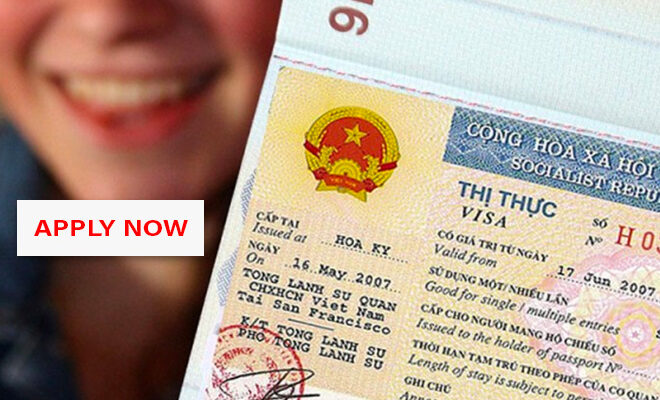
Before applying for a Vietnam Tourist Visa in Turkey, it’s vital to understand the eligibility criteria that determine who can obtain a visa. These requirements typically encompass nationality, age, and financial stability.
Nationality Requirements
One of the fundamental factors influencing eligibility for a Vietnam tourist visa is your nationality. Citizens of many countries can easily obtain a tourist visa, but it’s essential to check if your specific nationality is subject to additional regulations or visa exemptions.
For Turkish citizens, Vietnam does require a visa for entry, meaning that thorough research is necessary to ensure a smooth application process. Familiarizing yourself with any travel advisories or changes in visa policies is recommended prior to embarking on your journey.
Age Restrictions and Limitations
In general, there are no strict age restrictions for obtaining a Vietnam tourist visa; however, minors may require additional documentation or parental consent to secure their visas.
Traveling with children necessitates extra planning and consideration regarding documentation, as well as understanding any unique entry requirements for children. Parents should verify all necessary paperwork to avoid complications during the application process.
Financial Stability Proof
Another critical aspect of eligibility concerns demonstrating financial stability. Applicants may need to provide proof of sufficient funds to support themselves during their stay in Vietnam.
This requirement can generally be satisfied by presenting bank statements or pay slips that reflect a stable income. Being prepared with this documentation helps streamline the application process, as visa officers often seek assurance that travelers can afford their expenses while in the country.
Application Process for Vietnam Tourist Visa in Turkey
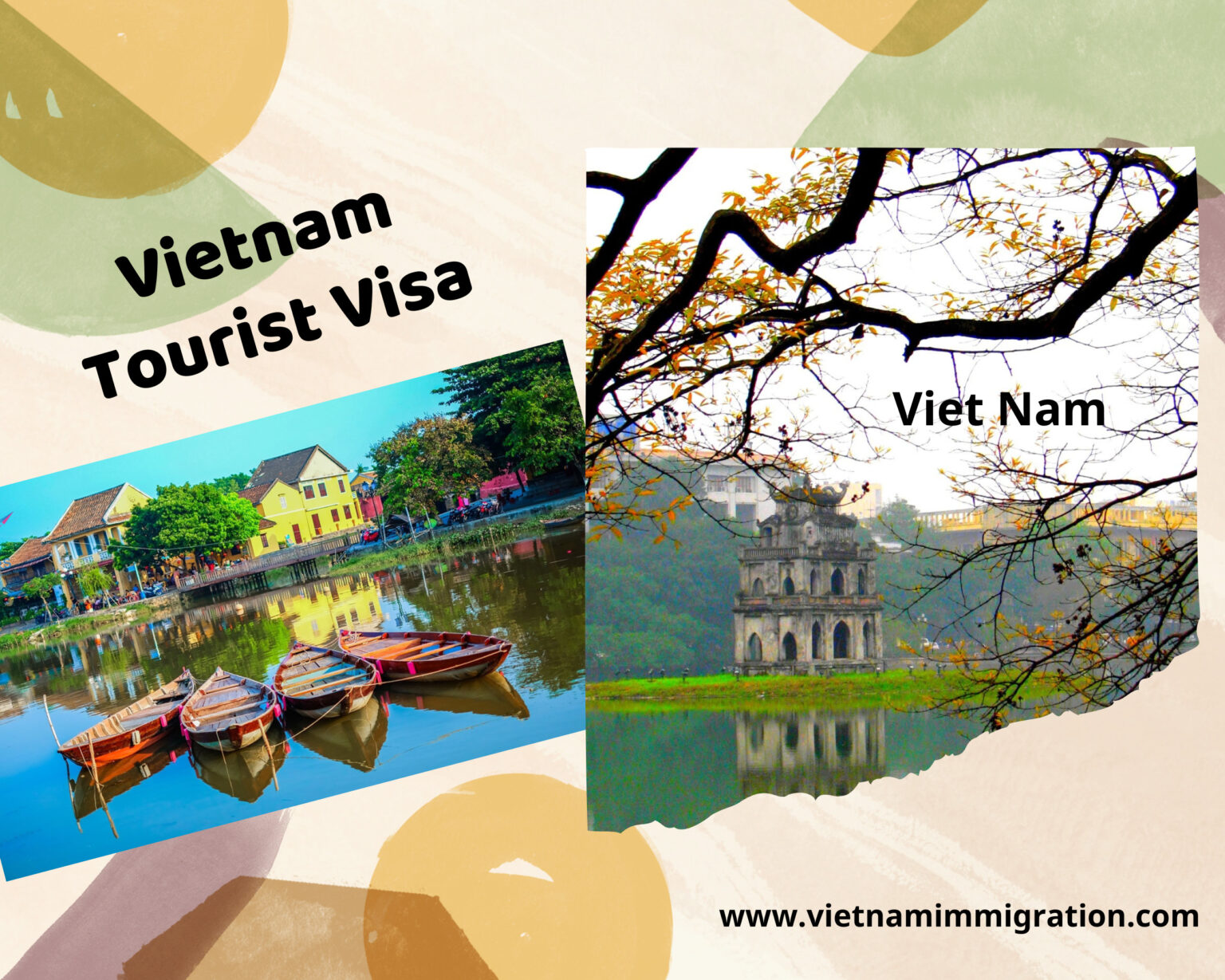
Navigating the application process for a Vietnam Tourist Visa in Turkey can seem overwhelming, but breaking it down into manageable steps can simplify the experience. Understanding how to apply and knowing what documents are required will help speed up the process.
Step-by-Step Guide to Apply
- Determine the type of visa you need based on your travel plans.
- Gather all necessary documentation, such as your passport, photographs, and financial proofs.
- Complete the visa application form accurately—double-checking for errors is crucial.
- Submit your application through the appropriate channel, whether it be at an embassy or online.
- Pay the applicable visa fees and retain the payment receipt for record-keeping.
- Wait for processing, after which you will receive your visa approval or denial notice.
Taking the time to follow these steps diligently can significantly reduce the chances of delays or problems with your visa application.
Required Documents for Application
Ensuring that you have all required documents ready before submitting your application is crucial. Commonly required documentation includes:
- Valid passport with at least six months of remaining validity
- Passport-sized photographs meeting specific size requirements
- Completed visa application form
- Proof of accommodation or travel arrangements in Vietnam
- Financial statements indicating sufficient funds
Having these documents organized and ready for submission will help prevent unnecessary complications and expedite the application process.
How to Submit Your Application
Depending on the method chosen for obtaining your visa, submission protocols may vary.
For those applying through the Vietnamese Embassy in Turkey, applications must be submitted in person or via post, along with the requisite documents. Ensure that all materials are included to prevent delays.
If opting for an e-visa, simply submit your application through the official website, following the outlined instructions, and pay the necessary fees electronically. Tracking your application status will be easy through the online portal, enabling you to stay informed.
Processing Time for Vietnam Tourist Visa
Once you have submitted your application for a Vietnam tourist visa, understanding the processing time is vital for planning your trip. Processing duration can vary based on several factors, including the type of visa applied for and the method of application.
Standard Processing Times
Generally, standard processing times for a Vietnam tourist visa range from three to five business days when applying at an embassy or consulate. It’s important to account for additional time for potential delays, especially during peak travel seasons or holidays, which can affect processing speeds.
When applying for an e-visa, approvals typically take around three business days, streamlining the process for many travelers. Nonetheless, it is wise to apply well in advance of your planned departure date to avoid any last-minute complications.
Expedited Processing Options
For those who find themselves in urgent situations, expedited processing is often available at some embassies or through selected online services.
While this option may incur additional fees, it can significantly reduce the waiting period. If you find that your travel dates are approaching rapidly, pursuing expedited processing might be the best course of action to ensure timely visa acquisition.
Tracking Your Visa Application Status
Staying informed about the status of your visa application can alleviate anxiety as you await approval. Most embassies or online platforms provide tracking features that allow applicants to monitor their application’s progress.
By entering your application details, you can access real-time updates, keeping you informed on when to expect your visa. This feature proves invaluable, particularly for those with tight travel timelines.
Fees Associated with Vietnam Tourist Visa
Understanding the associated fees of obtaining a Vietnam Tourist Visa in Turkey is crucial for budgeting your trip. These costs can vary based on the visa type, processing method, and additional services chosen.
Breakdown of Visa Fees
Visa fees can differ significantly depending on the type of visa requested—single-entry versus multiple-entry, for example. Typically, single-entry visas cost less than their multiple-entry counterparts due to the latter’s added flexibility.
Other potential fees might include service charges for expedited processing or document handling. Researching and budgeting for these costs in advance will help ensure clarity in your financial planning.
Payment Methods Available
Payment methods for visa fees can also vary depending on where the application is submitted.
At embassies, payments are often accepted in cash or through bank transfers. Online applications usually allow for credit card payments, simplifying the transaction process for many travelers.
Regardless of the payment method, retaining receipts or confirmation of payment is essential for reference in case of any discrepancies during processing.
Refund Policies for Visa Fees
It’s important to be aware of the refund policies concerning visa fees, as circumstances can change unexpectedly. Generally, visa fees are non-refundable, even in cases of application denial.
However, exceptions may exist based on specific scenarios or policies at individual embassies. Checking with the relevant authority about their refund policy can save you from unexpected losses.
Notes
Preparing for a successful visa application requires attention to detail and awareness of common pitfalls. By following these notes and tips, travelers can minimize potential difficulties.
Tips for a Smooth Visa Application Experience
- Begin the application process well in advance of your planned travel dates to accommodate any unforeseen delays.
- Double-check your application for completeness and accuracy before submission—errors can lead to significant setbacks.
- Stay updated on any visa policy changes or requirements specific to your nationality to avoid surprises.
- Maintain open communication with the embassy or online platform if questions or concerns arise during the process.
By incorporating these tips into your application strategy, you can enhance your chances of a smooth experience.
Common Mistakes to Avoid During the Application Process
Many travelers encounter similar mistakes when applying for visas. Understanding these common pitfalls can help you avoid them.
One typical mistake is failing to provide accurate documentation or omitting vital paperwork. This oversight can delay processing or result in outright denial.
Additionally, misunderstanding visa requirements can lead to unnecessary complications, so ensure you thoroughly read and comprehend all guidelines.
Finally, double-checking all information and documentation before submission can prevent errors that could jeopardize your application.
Mistakes to avoid Vietnam Tourist Visa in Turkey
Applying for a visa can be fraught with challenges, and avoiding common mistakes can significantly improve your chances of approval. Here are some key pitfalls to watch out for during the application process.
Incomplete Documentation
One of the leading causes of visa denials is incomplete documentation. Each visa application has specific requirements, and failing to submit necessary documents can lead to rejection.
To mitigate this risk, create a comprehensive checklist of all required materials before starting your application. Thoroughly review the guidelines to ensure nothing is overlooked.
Misunderstanding Visa Requirements
Misinterpretation of the visa requirements can lead to confusion and unintentional mistakes. Each visa type comes with its own set of rules and restrictions, so familiarizing yourself with the specifics is crucial.
Engaging with forums or speaking to previous travelers can also provide insights into any unwritten nuances, helping you navigate the requirements effectively.
Failing to Double-Check Information
Even small errors can result in significant consequences when applying for a visa. Typos in your name, passport number, or other personal information can delay processing or even invalidate your application.
Take the time to double-check every entry on your application. Having someone else review your submission can provide an extra layer of assurance that you’ve caught any potential mistakes.
Entry Requirements upon Arrival in Vietnam
Once you have successfully obtained your visa, understanding the entry requirements upon arrival in Vietnam is critical for ensuring a smooth transition into the country.
Customs Regulations
Upon arrival, travelers must adhere to Vietnam’s customs regulations, which govern what items can be brought into the country. Certain goods, including firearms, narcotics, and counterfeit products, are strictly prohibited.
Declaring any items that fall under the restricted categories is crucial to avoid potential fines or legal repercussions. Familiarizing yourself with the customs regulations ahead of time will help you navigate this process without issues.
Health and Safety Guidelines
Staying informed about health and safety guidelines is particularly important, especially given the evolving global landscape. Ensure that you meet any vaccine requirements or health declarations mandated by the Vietnamese authorities.
Consulting with a healthcare provider before travel can help you stay informed about necessary vaccinations and medications to safeguard your health during your visit.
Length of Stay Rules
Vietnam imposes length of stay rules that dictate how long travelers can remain in the country based on their visa type. Understanding these regulations is vital to avoid overstaying your visa, which can lead to legal issues and fines.
Be sure to keep track of your arrival and departure dates to ensure compliance with the visa terms. Setting reminders can be useful in managing your travel itinerary effectively.
Extending Your Tourist Visa in Vietnam
If your travel plans change or you want to prolong your stay in Vietnam, understanding the process for extending your tourist visa is essential.
How to Apply for an Extension
Visa extensions for tourists can generally be processed through local immigration offices in Vietnam. While the process may vary based on your location, most applications require you to submit your current visa, passport, and extension request form.
It’s advisable to initiate the extension process at least a week before your current visa expires to avoid any issues with overstaying.
Fees for Extension Requests
Extending your tourist visa is not free, and different fees may apply depending on the length of the extension and the type of visa.
When applying for an extension, ensure that you budget for these fees to avoid surprises during the process. Retaining a receipt for the extension fee is also a good practice for record-keeping.
Possible Denials and Appeals
Extensions are not guaranteed, and there are instances where requests may be denied. In such cases, travelers can appeal the decision, though the process may vary based on local regulations.
Being prepared for such possibilities by researching the appeals process can help you navigate any difficulties that arise should your extension request be denied.
Overstaying Your Visa: Consequences
Overstaying your visa can result in severe penalties, making it crucial to adhere to the stipulated length of stay.
Legal Penalties for Overstaying
Vietnam imposes legal penalties for those who overstay their visas, which may include fines, detention, or deportation.
The longer you overstay, the more severe the consequences can become. Therefore, keeping track of your visa expiration date and maintaining clear communication with local authorities is essential.
How to Handle Overstaying Issues
If you find yourself in a situation where you’ve overstayed your visa, it’s essential to address the problem immediately. Visiting the local immigration office to explain your situation and seek assistance is the best course of action.
Demonstrating transparency and a willingness to comply with local laws can help mitigate the situation and potentially lessen the penalties imposed.
Traveling from Turkey to Vietnam: Tips and Recommendations
Planning your trip from Turkey to Vietnam involves considering various factors, including flight options, layover strategies, and cultural preparations.
Best Airlines for Travel
Several airlines offer flights connecting Turkey to Vietnam, with popular choices including Turkish Airlines, Qatar Airways, and Emirates.
Researching the airlines to find the best combination of price, comfort, and schedule that aligns with your travel preferences can greatly enhance your flying experience.
Suggested Routes and Layovers
Direct flights from Turkey to Vietnam may not always be available, so being open to layovers can help expand your options. Common layover cities include Doha, Dubai, and Bangkok.
Utilizing layovers to explore another city is a great way to maximize your travel experience, so consider planning additional time in these locations if your itinerary allows.
Preparing for Cultural Differences
Vietnam boasts a fascinating culture that may differ significantly from what you’re accustomed to in Turkey. Taking time to familiarize yourself with local customs, language basics, and social etiquette can enrich your travel experience.
Respect for local traditions and cultural norms can foster positive interactions with locals, offering a deeper understanding of the people and their way of life.
Frequently asked questions
As travelers prepare for their journey, several common inquiries often arise regarding visa-related matters and travel logistics.
What if my visa application is denied?
If your visa application is denied, it’s important not to panic. Review the reasons for denial, which are typically outlined in the notification.
Should you believe the denial was unwarranted, you may have the option to appeal the decision or rectify any issues with a reapplication. Consult with the embassy or a visa expert for guidance on your next steps.
Can I work on a tourist visa in Vietnam?
Tourist visas strictly prohibit working in Vietnam. Engaging in employment or business activities on a tourist visa can lead to penalties and potential ban from re-entering the country.
Those wishing to work in Vietnam must apply for the appropriate work visa instead of utilizing a tourist visa for this purpose.
Is travel insurance necessary for visiting Vietnam?
While travel insurance is not mandatory for entry into Vietnam, it is strongly recommended. Insurance can provide peace of mind against unexpected events such as medical emergencies, cancellations, or theft.
Prioritizing travel insurance in your planning phase can help safeguard your trip and ensure a worry-free experience.
Conclusion Vietnam Tourist Visa in Turkey
Ultimately, obtaining a Vietnam Tourist Visa in Turkey is an essential step in preparing for your journey to this captivating country. By understanding the various visa types, application processes, and entry requirements, you can navigate the complexities of travel with confidence.
With meticulous preparation, attention to detail, and adherence to local regulations, your travels in Vietnam can unfold seamlessly. Embrace the opportunity to explore the diverse culture, stunning landscapes, and rich history this enchanting nation has to offer. Happy travels!





